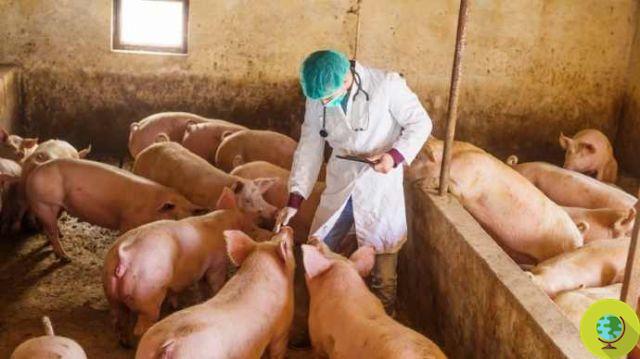
Mad cow, pink slime, avian. Here are some of the most well-known risks associated with meat consumption and intensive farming. Do they really represent the greatest danger? Probably not. An element that is only partly new is now causing concern: the use and abuse of antibiotics in farms.
Don't store avocado like this: it's dangerous
Mad Cow, pink slime, avian. Here are some of the more well-known risks related to meat consumption and to intensive breeding. Do they really represent the greatest danger? Probably not. An element that is only partly new is now giving cause for concern: the use andabuse of antibiotics administered to animals.
The reference is above all to the production of beef and pork, but also to poultry farming. The use of antibiotics is now a normal practice, widespread all over the world. In the United States the limit would now have been more than crossed. The administration of antibiotics to farm animals is leading to the formation of more and more frequently battery super-resistant.
Against the attacks of new bacteria there is no cure. Infections due to the consumption of contaminated meat, in the United States alone, are the cause of death of at least 23 thousand people every year. This is what emerges from the latest report drawn up by Centers for Disease Control and Prevention (CDC), which bears the title of “Antibiotic resistance threats in the United States, 2013”.
The paper focuses on the dangers associated with the spread of antibiotic-resistant bacteria. The abuse of antibiotics by thefood industry is considered the main cause of the spread of incurable infections. Over the past few years, the bacteria became stronger. In the most worrying cases, neither antibiotics nor other medicines are effective in stopping their attacks.
According to the CDC, 2 million people a year are infected from bacteria resistant to antibiotics. Broad-spectrum medicines are widely used not only in normal medical treatment aimed at citizens, but especially in pharmacological treatments intended for meat animals.
As reported by The Guardian, 80% of antibiotics sold in the United States are administered to animals through water and feed. Their use in farms would now be out of control and it is therefore extremely difficult to know where, when and in what quantities vegan used.
Furthermore, we do not have certain data regarding the antibiotic residues that remain in the flesh normally present in points of sale. There are no laws in the United States that require testing. Already in small doses, antibiotics would be able to lead to the formation of resistant bacteria both in the human intestine and in waterways and in natural or inhabited areas located near farms.
Antibiotics can annihilate an excessive number of bacteria present in our body, so much so that they are among the causes of an increased risk of cancer, heart disease, obesity and diabetes. The CDC ruling is clear: "The use of antibiotics for growth is not necessary and the practice should be prohibited".
The FDA has proposed to drug companies that they label antibiotics only as drugs to prevent disease, not as growth promoters for farm animals. Some experts suggest immediate ban their use, which should only be permitted under veterinary prescription. In some European countries, the abuse of antibiotics has already been regulated, but the United States is still a long way from this goal.
Marta Albè
Read also:
Antibiotic Resistant Bacteria? They are born on farms


























